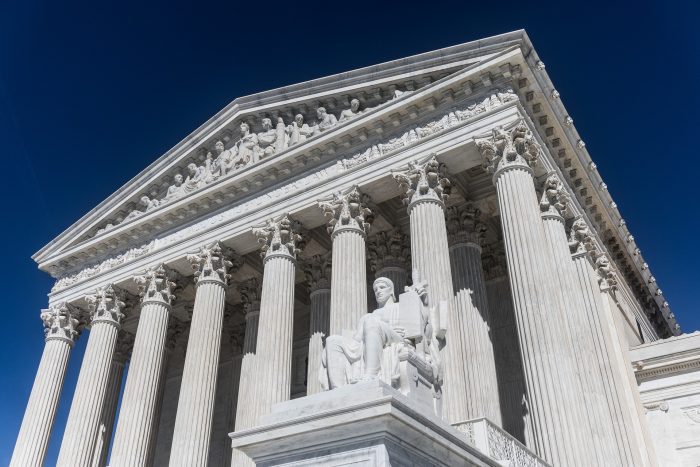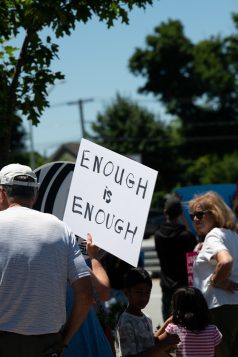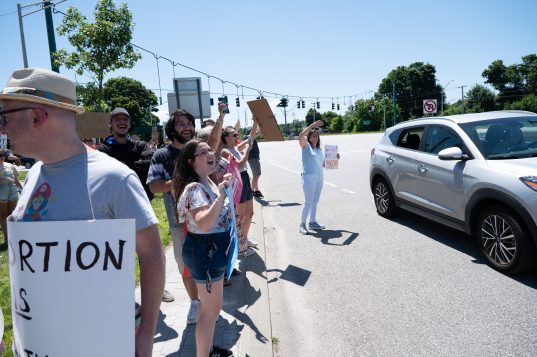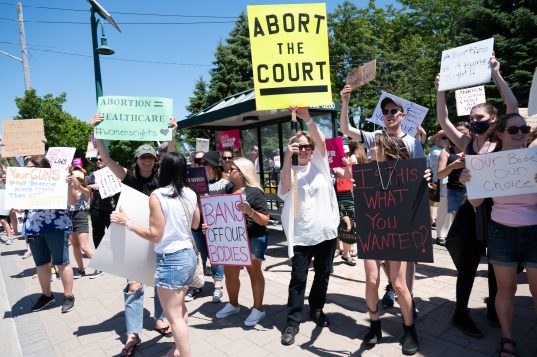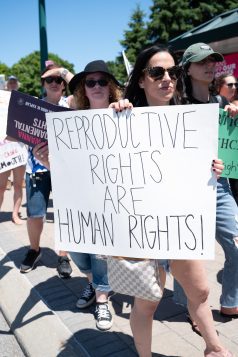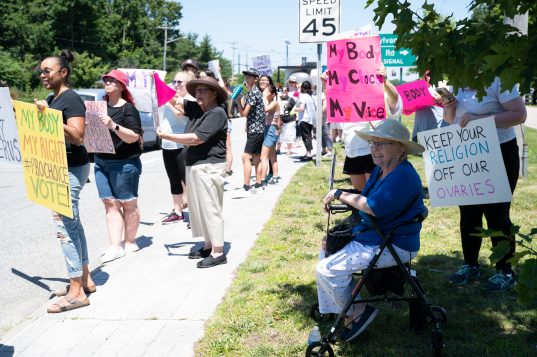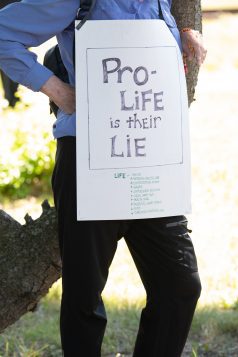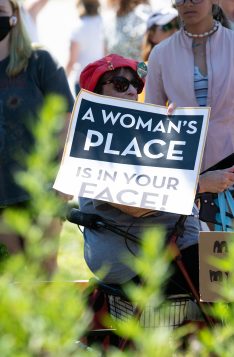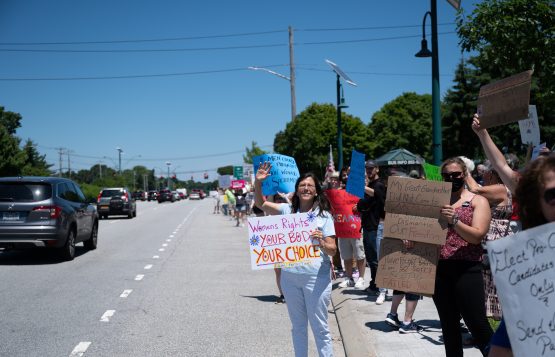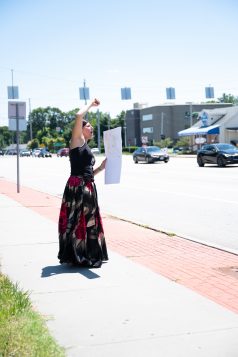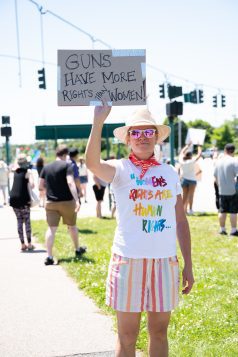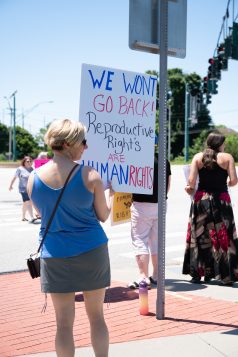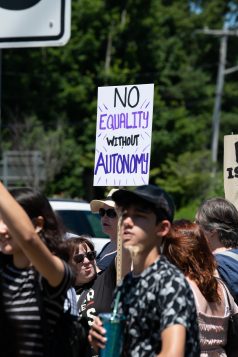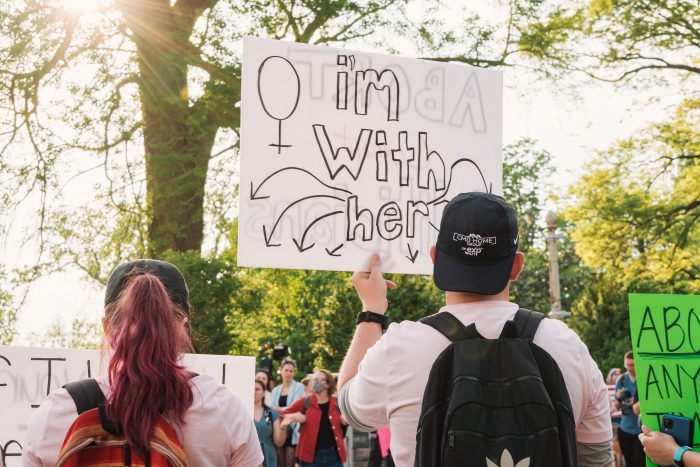By Nancy Marr
In December of this year, the case Moore v. Harper is scheduled for argument before the Supreme Court of the United States. Its decision will resolve whether there is a doctrine of constitutional interpretation known as the “independent state legislature” which would give state legislatures unreviewable power to redraw congressional districts and appoint state electors who cast votes for president and vice-president. It would remove the power from state courts, including the state’s highest court, to invalidate gerrymandered congressional districts drawn by state legislatures.
The history
On November 4, 2021, the North Carolina General Assembly adopted a new congressional voting map based on 2020 Census data. The legislature, at that time, was controlled by the Republican Party and the gerrymandering was so extreme that an evenly divided popular vote would have awarded ten seats to ten Republicans and only four to the Democrats. According to the Brennan Center, the map was a statistical outlier more favorable to Republicans than 99.9999% of all possible maps.
In 2019 in Rucho v. Common Cause, the Supreme Court held that federal courts lack jurisdiction to resolve claims of unconstitutional partisan gerrymandering because there is no prohibition of partisan districting in the U. S. Constitution.
Subsequently, in the case Harper v. Hall (2022), a group of voters and nonprofit organizations affiliated with the Democratic Party challenged the North Carolina map in state court, alleging that the new map was a partisan gerrymander and violated the state constitution.
In February 2022, the North Carolina Supreme Court agreed with voters and struck down the map, describing it as an “egregious and intentional partisan gerrymander designed to enhance Republican performance, and thereby gave a greater voice to those voters than to any others.”
The unrepentant legislature then proposed a second gerrymandered map, prompting a state court to order a special master to create a fair map for the 2022 congressional elections. Unwilling to accept this outcome, two Republican legislators asked the U. S. Supreme Court to step in and reinstate their gerrymandered map.
In March, the Supreme Court rejected the legislature’s emergency appeal to put the gerrymander back in place. At the urging of four of the justices, the legislators filed a regular appeal, asking the court to review the case. In June, the Court agreed to do so.
The issue
In urging the Supreme Court to reinstate the gerrymandered congressional map, the North Carolina legislators were relying on a reading of the U.S. Constitution’s Election Clause known as the independent state legislature theory (ISL). The Election Clause (ARTICLE 1, SECTION 4) reads: The times, places and manner of holding elections for senators and representatives, shall be prescribed in each State by the legislature thereof; but the Congress may at any time by law make or alter such regulations…
Section 5 reads: Each House shall be the judge of the elections, terms and qualifications of its own members.
Proponents of the ISL theory reason that the Elections Clause gives state legislators exclusive authority to regulate all elections. This allows them to violate the state constitution (which disallows partisan gerrymandering) when drawing congressional maps and that neither the state nor federal courts have the power to stop them. Proponents of the theory also believe it gives the state legislature control over the electors who will certify the election, as advocated by deniers of the 2020 election results.
Opponents of the ISL theory argue that the term “legislature” does not mean solely “the legislature.” The standard interpretation of “legislature,” by groups like the bipartisan Conference of Chief Justices, means the state’s general lawmaking process, including all the normal procedures and limits. The Cato Institute, a right-leaning think-tank founded and funded by the Koch Brothers, published analyses that concluded that the ISL theory relies on a “long rejected” interpretation of the Constitution that would disrupt “settled law.”
What is next?
The Supreme Court could decide Moore without having to address the ISL theory. The immediate issue in Moore is whether the voters across the country will have judicial remedy in state court to fight partisan gerrymandering. A majority of Americans want fair maps, with representatives determined by voters, not self-interested politicians seeking personal gain. Every state should use maps that guarantee that every vote counts equally and every voice is heard.
Nancy Marr is Vice-President of the League of Women Voters of Suffolk County, a nonprofit nonpartisan organization that encourages the informed and active participation of citizens in government and influences public policy through education and advocacy. For more information, visit www.lwv-suffolkcounty.org or call 631-862-6860.

